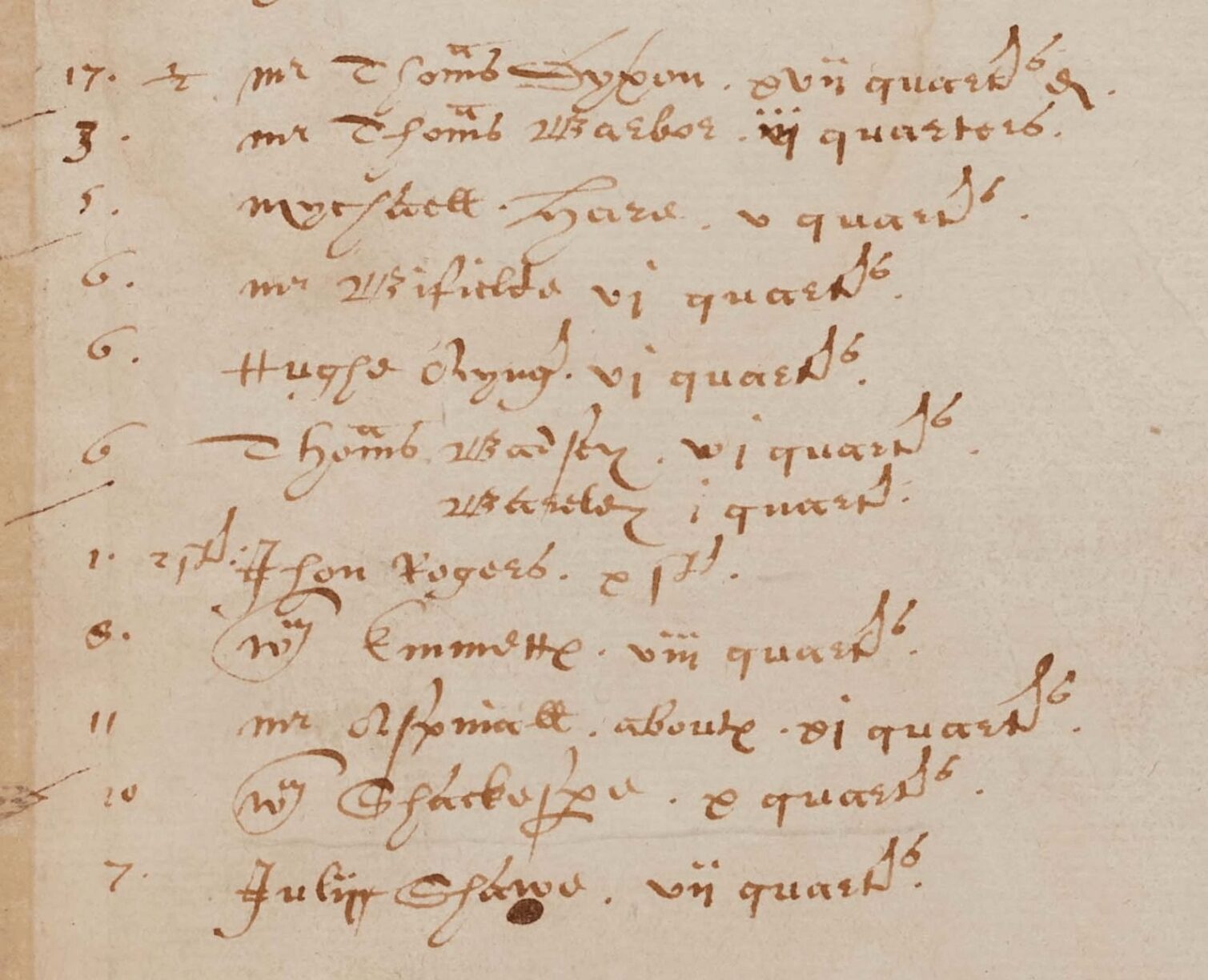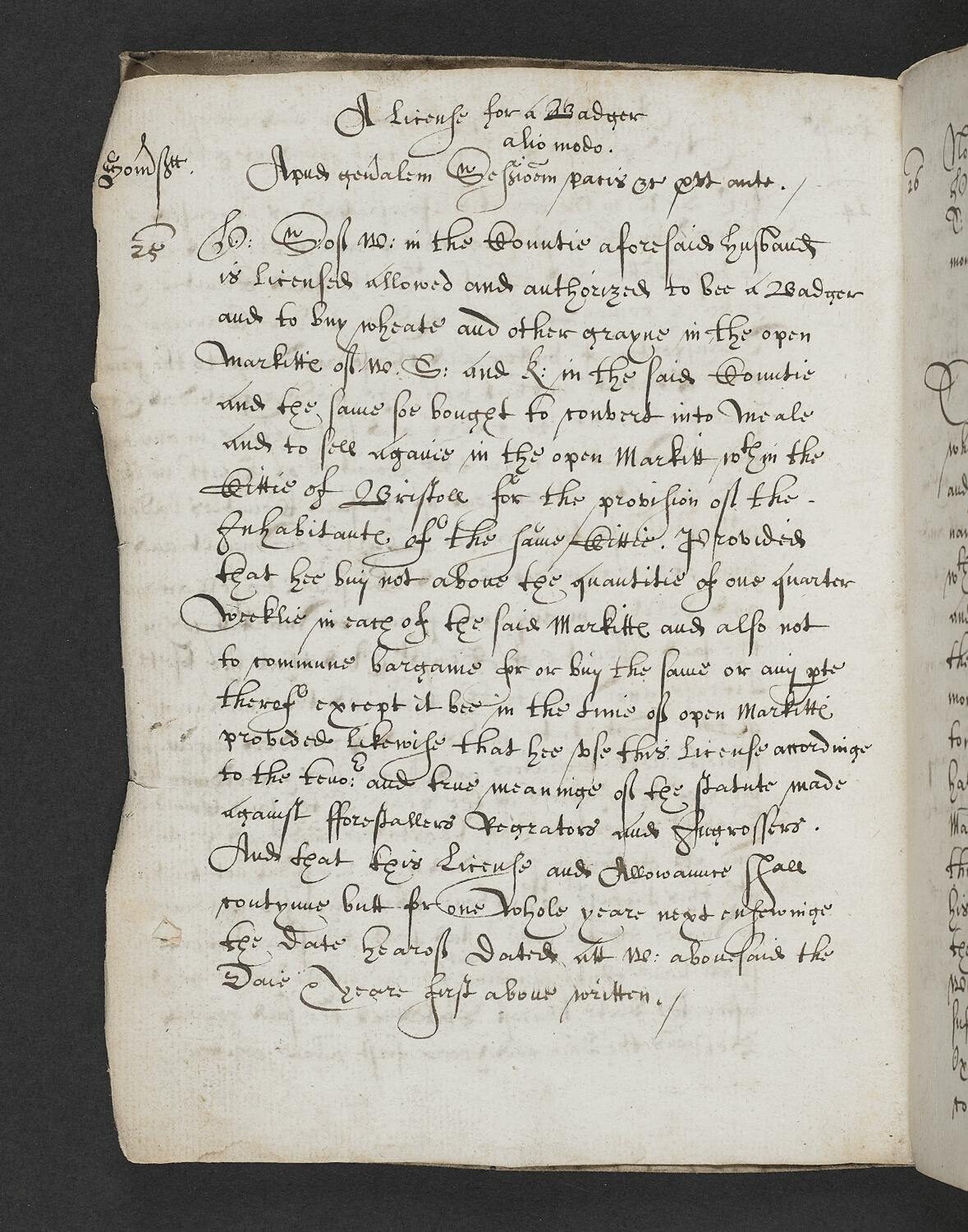The Bard and the Badger: the story of a grain hoarder
This Sunday, 23 August, marks five months since the lockdown began here in the UK and, as restrictions slowly but steadily begin to ease, I’ve been reflecting on my lockdown experience.
I went into quarantine with grand aspirations about practising the flute, getting into shape and learning new skills; these ambitions quickly fell by the wayside and were replaced by video games, takeaways and an unhealthy sleep schedule. On behalf of the lockdown slobs, I’d like to use this blog to hit back at one of the quarantine’s greatest over-achievers: William Shakespeare, who supposedly wrote King Lear while quarantined from the plague in 1606.
A collection of miscellaneous documents in AM’s Early Modern England: Society, Culture & Everyday Life, 1500-1700 resource contains a survey of townspeople storing corn and malt in Stratford-upon-Avon; Shakespeare’s name (or, at least, the name ‘Wm Shackespere’) appears on this list alongside the surprisingly large amount of ten quarters. Only sixteen other townspeople on the list held more grain than Shakespeare: two owned the same amount and fifty-three held less.

From Miscellaneous Documents, Vol. 1, 1560-1665, © Shakespeare Birthplace Trust. Further reproduction is prohibited without permission.
This survey, taken in 1598 after a series of bad harvests caused the price of wheat to nearly double since 1592 (see Our World in Data), hints towards Shakespeare’s nefarious side-gig: hoarding corn during times of plenty to sell at vastly inflated prices during food shortages. The bard may have spent the summer of 1606 writing, but in March 2020 he would likely have been ransacking shops for stockpiles of loo roll, hand sanitiser and pasta.
Famines and food shortages were common problems in early modern England: there were at least 40 food riots between 1586 and 1631. Hoarders like Shakespeare only exacerbated the issue and early modern authorities made serious efforts to combat the stockpiling of corn. One such attempt leads us to possibly the most startling revelation of Early Modern England: Society, Culture & Everyday Life, 1500-1700: that Shakespeare was a badger.

Memorandum book of John Locke (Add Ms 28273 ), 1623-1655, © Content provided by: The British Library Board. All Rights Reserved. Further reproduction is prohibited without permission.
In a bid to limit the effect of food stockpiling, early modern authorities required individuals to obtain a license for the purchase and resale of wheat or other grains. Often, these licenses are restricted to where the licensed individual could trade and the amount they could buy or sell. One such license, contained in Early Modern England: Society, Culture & Everyday Life, 1500-1700 as part of a memorandum book belonging to John Locke, is referred to as ‘A License for a Badger’ and authorises the licensee to ‘bee [sic] a badger’.
Disappointingly, this isn’t evidence for early modern animagi; rather, it is simply a term for resellers of corn. While none of the licenses explicitly refer to Shakespeare as a badger, I believe the term fits.
About the collection
Early Modern England: Society, Culture & Everyday Life, 1500-1700 is out now.
Recent posts

The blog highlights American Committee on Africa, module II's rich documentation of anti-apartheid activism, focusing on the National Peace Accord, global solidarity, and student-led divestment campaigns. It explores the pivotal role of universities, protests, and public education in pressuring institutions to divest from apartheid, shaping global attitudes toward social justice and reform.

This blog examines how primary sources can be used to trace the impact of young voices on society, particularly during pivotal voting reforms in the UK and the US. Explore materials that reveal insights into youth activism, intergenerational gaps, and societal perceptions, highlighting their interdisciplinary value for studying youth culture, activism, and girlhood across history.
